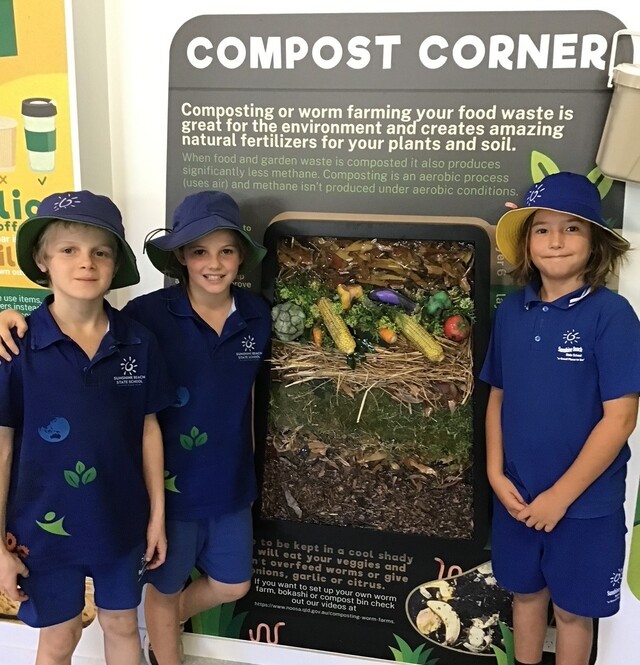With its thriving permaculture gardening program and flourishing composting initiative, Sunshine Beach State School is committed to preserving the natural environment.
This commitment is further underscored by its enthusiastic participation in the Recycling in Schools Program, an initiative championed by Noosa Council.
Recently, Noosa Council members visited the school’s year four classes to continue their mission of educating students about the benefits of recycling and to enhance the school’s already robust recycling program.
Sunshine Beach State School’s principal, Alison Welch said, “Our mission is to foster environmentally responsible citizens.”
“Collaborating with Noosa Council’s Recycling in Schools Program is a fantastic way to inspire our students to learn about the impact of rubbish on our local environment.”
“It also encourages them to play an active role in making our community more sustainable.”
A key highlight of the council’s visit was a waste audit of a tuckshop bin, conducted to identify opportunities for improved waste management within the school.
This hands-on activity allowed students to see firsthand the types of waste generated and to think critically about ways to reduce and manage this waste more effectively.
Following the council’s visit, year four students embarked on a guided tour and participated in an educational session at the Noosa Resource and Recovery Centre.
This experience was designed to deepen their understanding of sustainability and waste management, aligning perfectly with their Humanities, Arts, and Social Sciences (HASS) curriculum.
The learners were treated to an informative session in the Education Shed before traveling around the landfill by bus, witnessing the tangible impact of waste and recycling efforts.
During the session, students engaged in several interactive activities, including a demonstration showing what happens to household waste and recycling, a detailed explanation of what can and cannot be recycle, discussions on simple ways to reduce the amount of waste sent to landfill and an educational presentation about the effects of plastic on the ocean and the environment.
The visit was an eye-opener for many students, offering a vivid illustration of the consequences of improper waste disposal and the importance of recycling.








